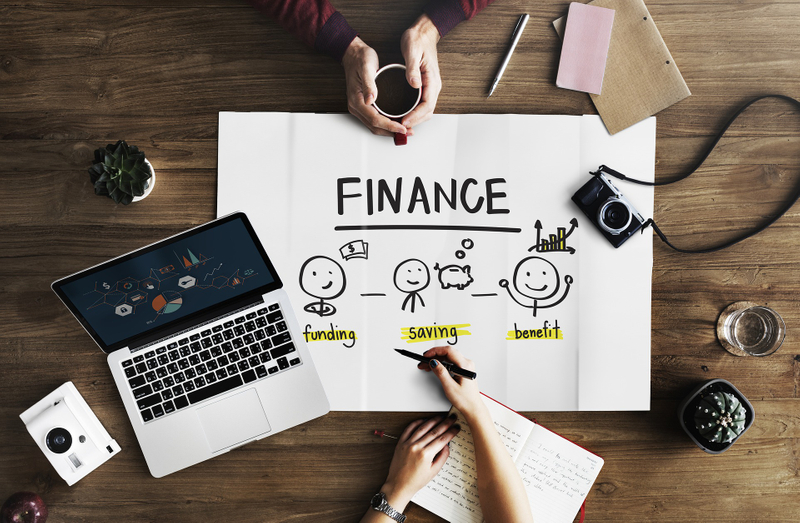
Dubai: The downturn triggered by the COVID-19 pandemic has globally created larger employment losses for women than for men, analysis by the World Economic Forum (WEF) revealed amid the health crisis that continues to affect millions worldwide.
“Given that women have statistically lost many more jobs than men in this recession, earnings losses will push down the average earnings of women in the global economy and raise the gender pay gap,” noted the WEF in a gender-pay report.
Although there was a financial gap between men and women before COVID-19, the gap is widening quicker than what economists had earlier forecasted. Before the pandemic, 206 million women globally lived in poverty; this figure is forecasted to rise to 232 million in the next 10 years.
One reason the WEF cites for this is that women’s employment is concentrated in sectors that are relatively stable in typical business cycles but were strongly affected by the shutdown and social distancing measures during the pandemic.
A global survey also indicated that women (42 per cent) reported worrying more than men (35 per cent) about their finances since the start of the pandemic, which reinforces the wider analyst commentary on the impact the recession has had on women.
What this means for women's retirement
With gender inequality increasing dramatically as the number of women in the workforce dwindles, what this means for women’s long-term financial health is significant.
The factors that analysts cite currently affects women’s financial security of retiring comfortably include lower historical lifetime earnings than men and greater pressure to be a primary caretaker of family.
Women, on average, has historically faced a larger retirement savings gap than men and experience higher poverty rates later in life. In 2018, the global poverty rate for women ages 65 and older was 11.1 per cent, compared to 8.1 per cent for men in the same age group, and the gap continues as men and women grow old.
This is partly because women are more likely than men to work in part-time jobs that don’t qualify for a retirement plan, and also interrupt their careers to take care of family responsibilities. Ultimately, fewer years of work lead to less retirement savings.
All of this means there’s even more reason for women to prioritise retirement saving early in their professional lives. The earlier you start, the longer you’ll have to multiply your money through compound interest.
How women’s finances affect the economy
Economists also warn that the pandemic has exacerbated some labour market trends, but reversed some others. While it’s been a negative blow to less-educated workers, that’s both a continuation of a decades-long trend, it’s been something of a reversal of the past two to three years, in which they had been seeing a better labour market.
At the start of this century, women worked nearly in the same proportion as men globally, particularly in the US, Germany, France, and the UK, however in the past couple of decades, those labour-force participation rates have diverged.
Some of what’s going on during the COVID-19 recession could just be a continuation of these trends, economists explain, although there’s issues, like the ones listed above, that might be affecting women during the COVID-induced economic recession.

Will this affect economic recovery?
Economists have cautioned that as women are pushed out of the labour force during in this crisis, it also exasperates any effect this may have on global economic recovery. Moreover, analysis shows sectors most affected by COVID-19 are the ones in which women are overrepresented, such as leisure and hospitality, retail and education.
Because these industries require high levels of human interaction, their activity over the past few months has decreased significantly, leading women to face unemployment at higher rates than men.
Another reason attributed by the WEF is that as schools and daycare centres were shut down through most of the pandemic, parents’ childcare needs multiplied, and women have provided the majority of additional childcare during the crisis, leaving many of them unable to work.
According to US-based lending giant Goldman Sachs: “Single parents, parents with young children and parents who can’t work from home are the groups most at risk to stop working entirely because they have no child care.”
Before the pandemic, inadequate child care was costing working parents $37 billion (Dh135 billion) a year in lost income and employers $13 billion (Dh48 billion) a year in lost productivity worldwide, according to data compiled by US-based care.com.
How can women protect finances during COVID-19?
Matter experts add that reducing expenses, tapping relief programs from banks and prioritising housing, food and medical care are the first steps women can take to protect their financial health.
While these strategies may help lessen some of the economic fallout, keep in mind that the pandemic's harsh financial impact on women is not an individual issue. Generally, bigger fixes will come from wider policy implementations, a new stimulus package or the end of the pandemic through something like the introduction of a vaccine, experts say.
The pandemic has evidently made it difficult for individuals to meet basic financial goals, like saving a little each month and paying down debt. The traditional advice of putting away an amount of savings every month may not be working for people who are still making decisions based on anxiety.
Experts say as prevalent thoughts continue to be mostly on financial security of family or loved ones, it may be comparatively harder to do that based on traditional advice received pre-pandemic, as unexpected expenses, including medical bills, for example, have become an issue for many.
Expert recommendations
A common expert advice to those struggling with debt and a lack of savings throughout the pandemic is that an emergency fund takes precedence over maximum debt payoff.
In such cases, it’s recommended that people pay only as much debt as they need to pay — in some cases, just the minimum monthly payment. The logic behind paying less debt at this time is so individuals can work toward establishing a 30-day emergency savings fund.
Emergency funds are critical for individuals to have on hand if a personal crisis hits, as the coronavirus pandemic has proved yet again.
Credit cards are a convenient and safe way to pay for things (and possibly earn rewards for doing so), but to make them work for you, you have to pay off your balance every month in full.
It’s key to keep from using credit cards to finance your lifestyle, as the double-digit interest that accompanies these little pieces of plastic can make it hard for you to get ahead financially.
As your income increases over the years, financial planners reiterate that your focus should turn more towards securing your own future rather than that of your family.
Investment in less risky products should become the norm, as should a diversification of your financial portfolio – while also must reviewing your portfolio every month to weed out risks that aren’t in accordance with your financial goals.





